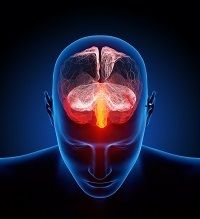Article
Asthma Increases Odds of Chronic Migraine
Author(s):

People who have occasional migraine headaches have a higher chance of becoming chronic migraine sufferers if they have a history of asthma, a research team reports.
Writing in the journal Headache,Vincent Martin, MD and Richard Lipton, MD of Albert Einstein College of M edicine and Montefiore Headache Center in the Bronx, NY and colleagues there and at other institutions reported on a cohort study of patients who had episodic migraines.
They were focused on which patients went on to develop chronic migraines, which was defined as greater than 15 headache days per month.
There were 4,446 patients in the study, of whom 17% had asthma. The mean age was 50.4 years and 80.8% were women.
New onset chronic migraine developed in 131 patients (2.9%).
The rate of those who already had asthma developing chronic migraine was 5.4% compared to 2.5% in the non-asthma group statistics that translate into a 2.1 times greater risk for those patients.
The reasons did not appear to be related to treatment, the authors noted.
"Medication overuse, preventative medication, or other co-variates did not account for this increased risk," they said. Nor did headache frquency, depression, allodynia or obesity.
But the severity of the patient's asthma did appear relevant, they noted.
Risk increased steadily as the severity of asthma increased, up to a 4 times higher risk in patients with the worse asthma.
They propose a shared biological mechanism for both illnesses.
Atopy is found in 85% of astha patients, for instance. SInce atopic response invlves the production of allergen-specific IgE antibodies and the priming of mast cells to release inflammatory mediators, that provess involves cells in close promiximity to dural trigeminal afferents. Mast cell secretagogues activate trigeminal nociceptors and increase c-fos expression in the spinal trigeminal nucleus in animal models.
Such mechanisms could work snergistically "leading to new onset chronic migraine in persons with asthma."
Of possible significance is the fact that the frequency of migraine "is decreased by 52% in young atopic migraineurs receiving allergy shots," they noted.
Further, they wrote, "degranulation of dural mast cells as a result of allergen exposure could directly activate or sensitize trigeminal nociceptors, which could then increase the frequency of migraine."
.




